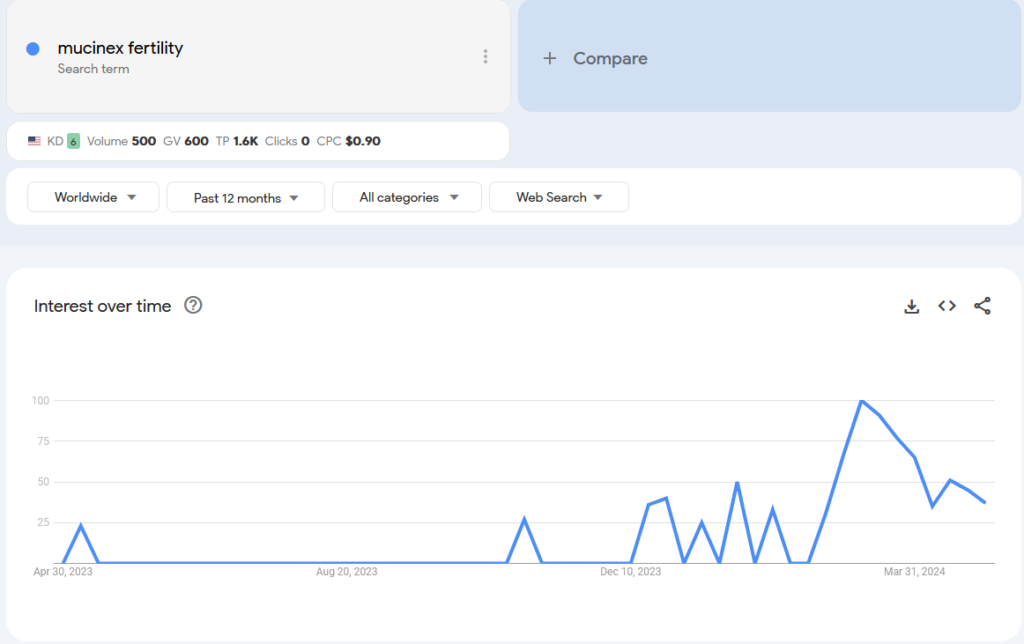Mucinex and Fertility: Can Guaifenesin Improve Your Chances of Getting Pregnant?
For those of you who follow me on social media know, few things get me more worked up then misinformation, especially as it relates to women’s reproductive health. Today, let’s take a look at the latest fertility myth buzzing about social media: Can Mucinex, yes, the cough syrup, boost your chances of getting pregnant? For those of you who don’t want to read the rest of this post, the answer is: no! For the rest of you, let’s explore the origins of this myth, examine the scientific research and the reasons why there is no scientific basis to this claim.
This peculiar idea took flight when Alexa, from Season 3 of the reality TV series “Love is Blind” attributed her pregnancy to her regimen of Mucinex taken around her ovulation period. While it’s easy to get swept up in heartwarming testimonials and hopeful messages, as a fertility specialist, I find it crucial (and kind of fun) to separate fact from wishful thinking.

So, why Mucinex? Well, it all boils down to guaifenesin, the active ingredient that’s been around the block since the days of 8-tracks and new episodes of the Brady Bunch, primarily known for battling the gunk in your chest during colds. The leap from mucus thinner to fertility enhancer is a big one. The theory suggests that just as Mucinex thins respiratory mucus, it might also thin cervical fluid, potentially making it easier for sperm to travel to the egg.
While the concept might sound plausible on the surface (and certainly less messy than some old wives’ tales), the real question is: does popping a Mucinex make you more likely to pop out a baby? Let’s dive into what the science says before you rush to the pharmacy aisle. Buckle up—it’s going to be an enlightening ride through the world of cough syrup and conception myths!
What is Mucinex and How Does It Work?
At its core, Mucinex is a brand name for a drug called guaifenesin, an expectorant that helps clear mucus from your airways, making your coughs more productive and less chest-clenching. Guaifenesin works by drawing water into the mucus, thinning it out, and thereby easing the process of clearing it from your airways. This action helps alleviate symptoms of a tight, painful cough by loosening and lightening the mucus load. It’s like turning a thick, sticky paste into a more fluid substance that’s easier to expel—a simple yet effective mechanism that has helped countless cold sufferers breathe a little easier.
The ‘Theory’ Behind Mucinex Improving Fertility
The leap from treating cold symptoms to boosting fertility hinges on a similar principle—that guaifenesin could also thin cervical mucus, much like it does with the mucus in your lungs. Cervical mucus plays a critical role in fertility; it nourishes and protects sperm as it makes the perilous journey through the female reproductive tract to meet the egg. The theory suggests that thinner, more fluid mucus could potentially ease this journey, enhancing sperm’s ability to navigate through.
While the idea of using Mucinex as a fertility aid might get a nod for creativity, it’s important to understand that the body’s mucus landscapes are vastly different. The mucus that guaifenesin targets in your airways during a cold is a far cry from the cervical mucus involved in reproduction. Respiratory mucus primarily traps and removes pathogens and debris, whereas cervical mucus must balance being a protective gatekeeper during most of the menstrual cycle with being a facilitator of sperm transport close to ovulation.
Thus, while the “mucus-modifying” capabilities of Mucinex are well-documented in respiratory care, its impact on fertility involves a much more complex interplay of biological factors and remains far less clear. In the next sections, we’ll delve deeper into the research and see if there’s substantial evidence to back up the fertility claims or if this is just another case of viral misinformation catching more attention than it probably should.
Does the Science Support Mucinex as a Fertility Aid?
When it comes to making decisions about health and fertility, turning to reliable scientific research is always the best course of action. So, what does the current body of scientific literature say about Mucinex, or more specifically, guaifenesin, and its effects on fertility? Not much. A quick search of PubMed for “guafanesin and infertility” came up with 5 results. Of these 5, there is only 1 scientific study done in 1982.

The 1982 Study: A Closer Examination
The primary piece of evidence cited by proponents of Mucinex for fertility enhancement is a study from 1982 entitled “Improvement of cervical factor with guaifenesin” . This study, often referenced in online forums and discussions, involved a small group of couples and was focused on improving postcoital test results—an old fertility test examining how sperm interacts with cervical mucus after intercourse.
This study reported that 15 out of 23 couples experienced improved test results and subsequently achieved pregnancy. However, this study lacks the rigor expected in contemporary research—it had no control group to compare outcomes, which means there’s no way to tell if these pregnancies would have occurred without Mucinex! Moreover, the study’s small sample size and its age (over four decades old) make it a less-than-ideal foundation on which to build a solid case for Mucinex’s role in enhancing fertility.
The Problem with Anecdotal Evidence
In the absence of robust research, many individuals turn to anecdotal evidence. Social media is rife with stories from people who believe that taking Mucinex helped them conceive. However, as any scientist or clinician will tell you, anecdotal evidence is not the same as scientifically validated information. Personal stories, while compelling and often heartwarming, are subject to a wide array of biases—such as confirmation bias and selection bias—that can distort the true effectiveness of any treatment. At the end of the day, in the absence of an actual study, there is no way to prove that taking Mucinex or some other supplement was what allowed someone to get pregnant rather than simple persistence in continuing to try to get pregnant!
Possible Risks of Using Mucinex for Fertility
While Mucinex is widely considered safe for its intended use—relieving chest congestion—its application as a fertility aid comes with potential risks. At the end of the day, it takes multiple tries over the course of months to get your cumulative probability of getting pregnant to an acceptable level. It’s not benign to take a medication that you don’t necessarily need 10 to 14 days each month, month after month!
Taking Mucinex has side effects. It can cause dizziness, drowsiness, headache, nausea, vomiting, abdominal pain, just to name a few. But I think the real potential harm of these DIY, try it yourself at home type strategies with really no evidence of benefit is that it may delay you actually getting to the root of your problem, getting a diagnosis and getting proper treatment! And as we all know, fertility is time sensitive. Anything that could potentially waste your time is not a good thing in my books.
Conclusion: Mucinex Should Not Be Used as a Fertility Aid!
While Mucinex is effective for its approved use, its role in fertility treatment is unsupported by scientific evidence and carries risks that outweigh any potential (and unproven) benefits. The absence of scientific data to support the hypothesis that Mucinex improves fertility gives the theory as much credence as believing that wearing red socks to a job interview will help your chances in getting hired. In matters of fertility, remember, time is your greatest enemy. I encourage any couple experiencing fertility issues to forego the homespun remedies and tales heard in the deep corners of Reddit. Instead, seek a consult with healthcare providers who specialize in reproductive health to explore proven, safe, and effective treatment options.
If you’d like to learn more about the Mucinex and Fertility myth, please check out my YouTube video on the topic below:


